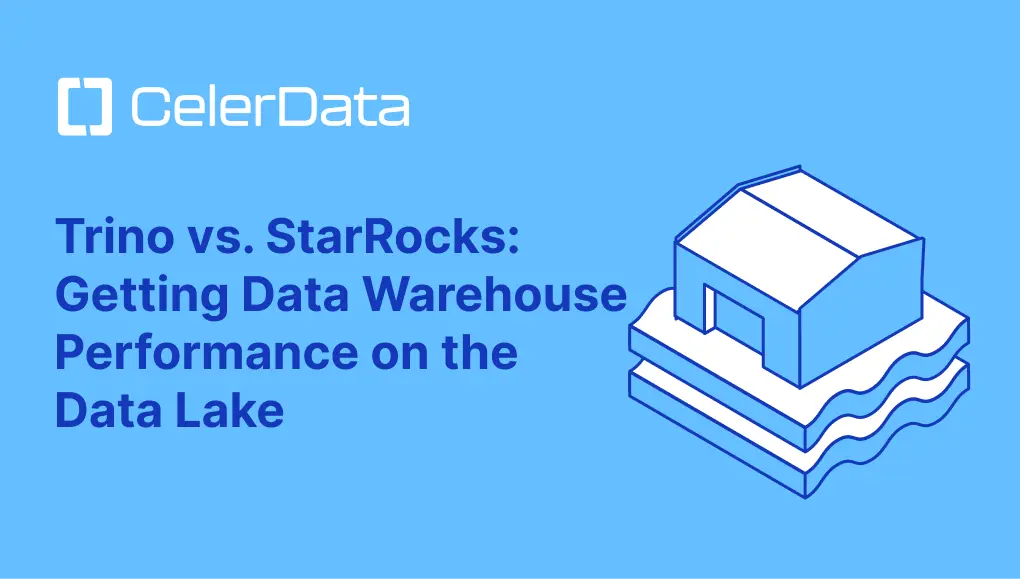
Understanding Data Privacy

Join StarRocks Community on Slack
Connect on SlackData privacy is about control—control over who gets to see, use, and share your personal information. In today’s digital world, where companies and governments track everything from what you buy to how long you spend on a website, ensuring data privacy isn’t just a legal issue—it’s a personal right.
Every time you browse the web, sign up for a new service, or even use a smart device, you're leaving behind a digital footprint. The question is: Who has access to that footprint? And are they using it responsibly? With the explosion of AI, big data, and the Internet of Things (IoT), personal data is being collected at an unprecedented rate. While this data helps improve products and services, it also raises serious concerns about security, misuse, and manipulation.
To put things into perspective, in 2022 alone, the average cost of a data breach hit $4.35 million. That’s not just a financial hit for companies—it’s a violation of trust for millions of people. Whether you're an individual trying to protect your privacy or a business navigating compliance laws, understanding data privacy is more important than ever.
What Exactly is Data Privacy?
Breaking It Down: The Basics
Personal Data: What’s Considered Private?
Personal data is any information that can be used to identify you. Some examples are obvious, like your:
-
Name and address
-
Phone number and email
-
Social Security or passport number
-
Financial or health records
But some are less obvious, like:
-
Your IP address and online browsing habits
-
What you “like” on social media
-
Your voice recordings from smart assistants
-
Your facial recognition data from security cameras
Companies collect this data to personalize ads, improve products, or sell to third parties. The problem? Many people don’t even realize how much of their personal life is being tracked.
Data Processing: What Happens to Your Information?
Data doesn’t just sit around—it gets processed. That means companies collect, store, analyze, and sometimes share your information. Ideally, this happens with your consent and for legitimate reasons. But data processing can also be invasive or outright exploitative when companies:
-
Collect more data than necessary
-
Share data without proper consent
-
Fail to protect it from hackers and leaks
Consent and Control: Who’s in Charge?
True data privacy means that you—not corporations or governments—decide what happens to your information. That’s why laws like GDPR and CCPA require businesses to get your permission before collecting and using your data. But let’s be honest—how often do you actually read those privacy policies before clicking “Agree”?
The goal is to move beyond fine print tricks and give people real control over their personal information. That includes:
-
Easily accessible privacy settings
-
The right to delete or download your data
-
Clear, simple explanations of how data is used
How Did We Get Here? A Look at Data Privacy’s Evolution
Data privacy used to be as simple as keeping your mail locked up or shredding sensitive documents. But as technology advanced, so did the ways data could be collected, stored, and misused. The digital era brought new concerns, forcing lawmakers to step in.
Key Moments in Data Privacy Laws
-
2018: GDPR (General Data Protection Regulation) – This EU law reshaped global data privacy by giving users more control over their personal data and enforcing hefty fines for violations.
-
2020: CCPA (California Consumer Privacy Act) – The U.S. stepped up with its own privacy law, giving California residents the right to know who’s collecting their data and opt-out of having it sold.
-
2021: China’s PIPL (Personal Information Protection Law) – China established one of the world’s strictest data privacy laws, heavily regulating how companies handle user data.
-
Ongoing: The Global Privacy Movement – More countries, including Brazil (LGPD), India (DPDP), and Canada (CPPA), are drafting laws inspired by GDPR.
The common theme? People deserve to know how their data is being used and should have the power to protect it.
Why Should You Care About Data Privacy?
It’s Not Just About You—It’s About Everyone
Identity Theft: The Real-Life Consequences
Think data breaches are just a corporate problem? Think again. When your personal information gets exposed, hackers can:
-
Open credit cards in your name
-
Take out fraudulent loans
-
Steal your tax refunds
-
Sell your medical records on the dark web
Every year, millions of people become victims of identity theft because their data wasn’t properly protected. That’s why data privacy isn’t just about preference—it’s about personal security.
Manipulation & Misinformation: How Your Data Shapes What You See
Ever notice how certain ads, political messages, or product recommendations seem weirdly specific? That’s because companies track what you click on, who you interact with, and what content keeps you engaged. While this can make your online experience more personalized, it also raises ethical concerns.
For example, data-driven algorithms have been used to:
-
Influence elections through targeted political ads.
-
Push misinformation by showing users only one side of an argument.
-
Encourage addictive behaviors by exploiting psychological patterns.
Understanding how your data is used helps you make informed decisions and protect yourself from being manipulated.
Data Privacy vs. Data Security: What’s the Difference?
You’ve probably heard people use “privacy” and “security” interchangeably. While they’re related, they’re not the same thing. Security is the foundation, and privacy is built on top of it.
Security: Protecting Data from Unauthorized Access
Security is all about keeping data safe. It follows the CIA Triad:
-
Confidentiality – Only authorized people should access sensitive data.
-
Integrity – Data should not be altered or tampered with.
-
Availability – Data should be accessible when needed by the right people.
Businesses focus heavily on security to protect their intellectual property, trade secrets, financial data, and customer databases from hackers. Cybercriminals and insider threats are their biggest concern.
Privacy: Controlling How Data Is Used
Privacy is about who gets access to your personal information and why. It goes beyond just keeping data safe—it ensures transparency and ethical handling of personal data. Privacy focuses on:
-
Notice – Are you informed about how your data is being used?
-
Consent – Have you agreed to this data collection knowingly?
-
Transparency – Can you verify how your data is being handled?
While security protects data from external threats, privacy deals with internal threats—the very companies that collect and store your data. This is where things get tricky.
Who’s the Real Threat?
-
Security concerns focus on hackers and cybercriminals trying to steal sensitive data.
-
Privacy concerns focus on companies collecting and monetizing your data without your full awareness.
Think about social media. Ever tried calling customer support? You probably couldn’t find a number. Why? Because you’re not their customer—you’re their product. You don’t pay for the service, which means the real customers are advertisers who buy your data. The question is: Are you getting a fair deal in exchange for your information?
Key Data Privacy Regulations You Should Know
With data driving nearly every aspect of business today, governments worldwide have introduced regulations to ensure responsible data handling. Here are some of the most significant laws shaping data privacy:
1. GDPR (General Data Protection Regulation)
Enforced in 2018, GDPR is one of the most comprehensive data privacy laws. It applies not just to European businesses, but to any company handling EU citizens’ data. GDPR gives users control over their data, requiring businesses to be transparent, obtain consent, and delete data upon request. Failing to comply can lead to fines up to €20 million or 4% of global revenue.
2. CCPA (California Consumer Privacy Act)
Often called the "American GDPR," CCPA grants California residents the right to know what data companies collect on them, request its deletion, and opt out of data sales. It applies to businesses that collect data from California residents—no matter where the business is based.
3. HIPAA (Health Insurance Portability and Accountability Act)
HIPAA protects medical records and health data, ensuring that patient information is handled securely by healthcare providers and insurers. Violating HIPAA can result in severe legal consequences.
4. The Privacy Act of 1974
This U.S. law regulates how the government collects and uses personal data, ensuring transparency and security for citizens' information.
5. The Children's Online Privacy Protection Act (COPPA)
COPPA requires companies to obtain parental consent before collecting data from children under 13. A proposed expansion, the Kids Online Safety Act, aims to increase protections for minors up to 17 years old.
6. Other Global Laws
-
China’s PIPL (Personal Information Protection Law) – China’s strict privacy law, similar to GDPR, regulates how businesses handle Chinese citizens' data.
-
Brazil’s LGPD (Lei Geral de Proteção de Dados) – Brazil’s privacy law modeled after GDPR.
-
Canada’s CPPA (Consumer Privacy Protection Act) – Canada’s updated privacy framework emphasizing consent and data transparency.
As data becomes an increasingly valuable commodity, understanding these laws is crucial for both businesses and individuals.
The Challenge: AI and Data Privacy in the Modern World
AI has changed the game when it comes to data collection and analysis. AI-powered tools can:
-
Predict your behavior based on past activity.
-
Analyze facial expressions and emotions from videos.
-
Create detailed profiles of individuals without them knowing.
Privacy-Preserving AI Techniques
To balance AI innovation with privacy, companies are starting to use:
-
Federated Learning – Training AI models without sharing raw personal data.
-
Differential Privacy – Adding noise to data sets to anonymize user information.
-
Pseudonymization – Replacing personal identifiers with generic labels.
The goal is to create AI that respects privacy rather than exploits it.
Final Thoughts: Why This All Matters
Data privacy isn’t just about legal compliance—it’s about trust, security, and personal freedom. Companies that respect user privacy build long-term relationships, while those that violate it face backlash, lawsuits, and reputational damage.
As individuals, we can:
-
Use strong, unique passwords
-
Be mindful of what we share online
-
Adjust privacy settings on social media
-
Support organizations that prioritize ethical data use
And as businesses, the responsibility is even greater. The future of data privacy isn’t just about following laws—it’s about putting people first.
The next time you click “Agree” on a privacy policy, take a second to think: Do I really know what I’m agreeing to? Because in the digital world, protecting your data means protecting yourself.



.jpg)